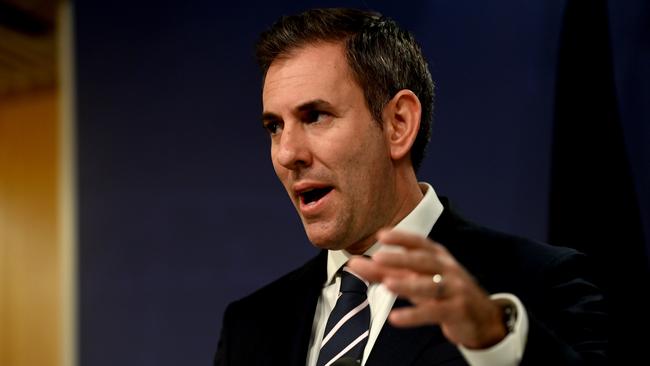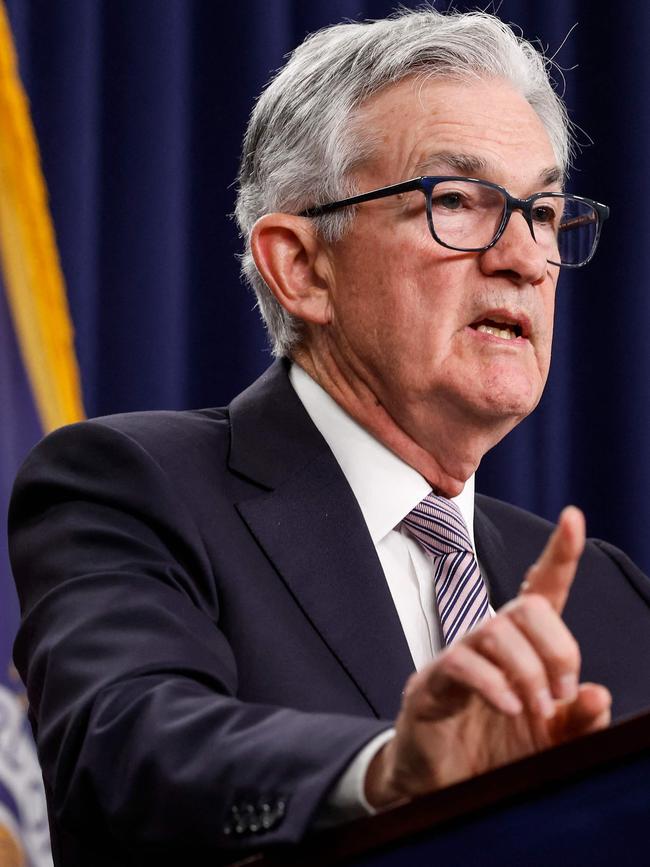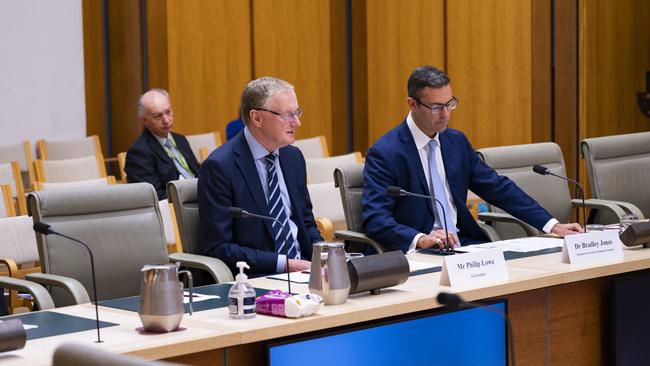If – as expected – the Labor backbench gets its way and a new central governor is nominated in the midst of a deeply unpopular hiking cycle, local politics could soon feel the sting of a bigger finance force: global money markets.
Any perception that Australia’s central bank – highly regarded in international circles for its independence – was bending its outlook to ease the white-hot political noise over interest rate rises would trigger a selldown in Australian bonds and currency. In turn that is likely to set off a new round of imported inflation.

Adding to this, Australian banks that need to turn to international markets to help fund their lending books would see a new risk premium added to their debt. Between homeowners and shareholders, guess who is likely to pay for this?
The Labor backbench needs to be careful what it wishes for. Would a new RBA governor do anything different in attacking inflation? Do they keep rates on hold? Or even as some are pushing for – cut rates? These will be the questions Chalmers needs to answer with confidence if a replacement is named.
A new central bank governor ignoring Australia’s inflation fire would certainly spark a financial meltdown on par with last year’s sell-off in the British pound and bonds when the short-lived Truss government tried to play politics with markets. That had the spillover effect of hitting shares when leveraged pension funds were forced to liquidate some of their holdings.
Worryingly, big offshore bond investors have in recent months quietly started to take notice about Australia’s bid to get inflation under control and whether this is genuine.
Australia’s hiking cycle is not done yet and in the days following last week’s 25 basis point rate hike a clutch of economists upped their forecasts for a terminal rate – that is the peak rate in the current cycle. And for the economy, the outlook isn’t good.
Goldman Sachs moved to a terminal rate of 4.85 per cent from 4.35 per cent previously suggesting three more hikes were needed in quick succession. Commonwealth Bank’s Gareth Aird expects one more hike at 4.35 per cent. Other economists including those at ANZ and RBC anticipate a 4.35 per cent peak rate.
If these hikes come it’s going to be financially tough – really tough – for many but it’s not grounds for Lowe’s dismissal. That’s the job he is paid to do.
Criticism
The early criticism around Lowe is that his RBA was too slow to respond to rising inflation and then he was too cautious while other central banks were moving more aggressively. For the harder-headed economists it was a missed opportunity to jump on inflation by taking the pain hit hard and early. Would the cash rate still be at current levels? It is very likely.
The criticism has now shifted full circle to Lowe moving too fast in pushing through rate hikes and is likely to tank the economy in the process.
There’s three things that have happened over the past months that have worried Lowe’s central bank on the rates front. Wages growth without productivity gains, house prices starting to rebound and signs inflation is heating up again. In a response to a question at the Morgan Stanley conference last Wednesday he said the bank couldn’t be “idle” in the face of these risks and that their patience “has a limit”.

Australia’s move to 4.1 per cent puts it at the lower end of a basket of countries now facing a second round of inflation. New Zealand late last month pushed through another 25 basis point rise taking its cash rate to 5.5 per cent. Bank of Canada last week moved 25 basis points to 4.75 per cent – with inflation running a “relative” soft 4.4 per cent. The rate setting committee of the powerful US Federal Reserve is expected to sit on its rate target range of 5 per cent to 5.25 per cent when it meets this week. Although the Fed boss Jerome Powell – who copped intense public criticism early on during Donald Trump’s presidency – is likely to flag he is not done yet hiking rates with the jobs market picking up again.
The UK last month pushed up rates to 4.5 per cent in an economy that contracted in the March quarter. The one difference between Australia and other parts of the world is that homeowners are more exposed to variable rates and therefore the lag is shorter.
Former RBA deputy governor Guy Debelle told The Australian’s Economic Outlook conference last Friday that while interest rates have gone up sharply over the past year, the moves were from an extraordinarily low level. On a historical measure – going back more than a decade – interest rates are still considered very low.
“The other thing that gets lost is that unemployment at just over 3.5 per cent – that’s pretty good. In the history of this country in the last couple of generations, that’s about as good as it gets,” Debelle said.
Jobs gains
Something that is being lost in the noise is Lowe’s admission he is going easy on hiking rates and in doing so is taking a big risk to protect jobs. The RBA’s current central forecast is that the headline inflation rate returns to three per cent in mid-2025, that is the very top of the target range.
“That’s a bit later than many other countries have inflation returning to target, but we’ve consciously taken that decision to have a slower glide path back to target,” Lowe told a Senate committee last month. “The reason we’ve done that is we want to do whatever we can to preserve the gains in the labour market we’ve achieved. Australia has not got to full employment in four decades. We finally got there, courtesy of the policy response during the pandemic by both the government and the Reserve Bank.
“None of that means we have a tolerance for inflation to stay higher for longer,” Lowe added. “Mid-2025 is pressing the length of time we can reasonably take. If we take longer than that, people might reasonably say, ‘Are you serious about the inflation target?’ I want to assure you that we’re serious but we also want to do what we can to preserve the gains in the labour market.”
Surely that line of argument should find an ounce of support from a Labor backbench.

State premiers too, including Victoria’s Daniel Andrews, who have slammed the RBA for hiking, need to check their own contribution to inflation. Victoria’s budget papers acknowledge public demand from Spring Street will add more fuel to inflation in the state given planned spending on infrastructure.
For his part, Chalmers says his efforts are around enhancing the independence of the RBA and not undermining it.
Even so, the Treasurer is happy to direct all political heat to the central bank’s Martin Place lobby instead of backing the institution. Chalmers has repeatedly said he will make a decision on the RBA governor’s extension around the middle of the year after consulting his cabinet colleagues.
The notion that the clock is ticking on Lowe’s tenure has already started to colour market thinking on how rates are likely to move next. It is clear the governor doesn’t want to leave a legacy that is beyond any doubt that everything was thrown at fighting inflation. On the current path Lowe has just three board meetings left to do this and this urgency may come at the cost of jobs.







Treasurer Jim Chalmers has less than three months to either replace the Reserve Bank governor or renew Philip Lowe’s contract for up to seven years.